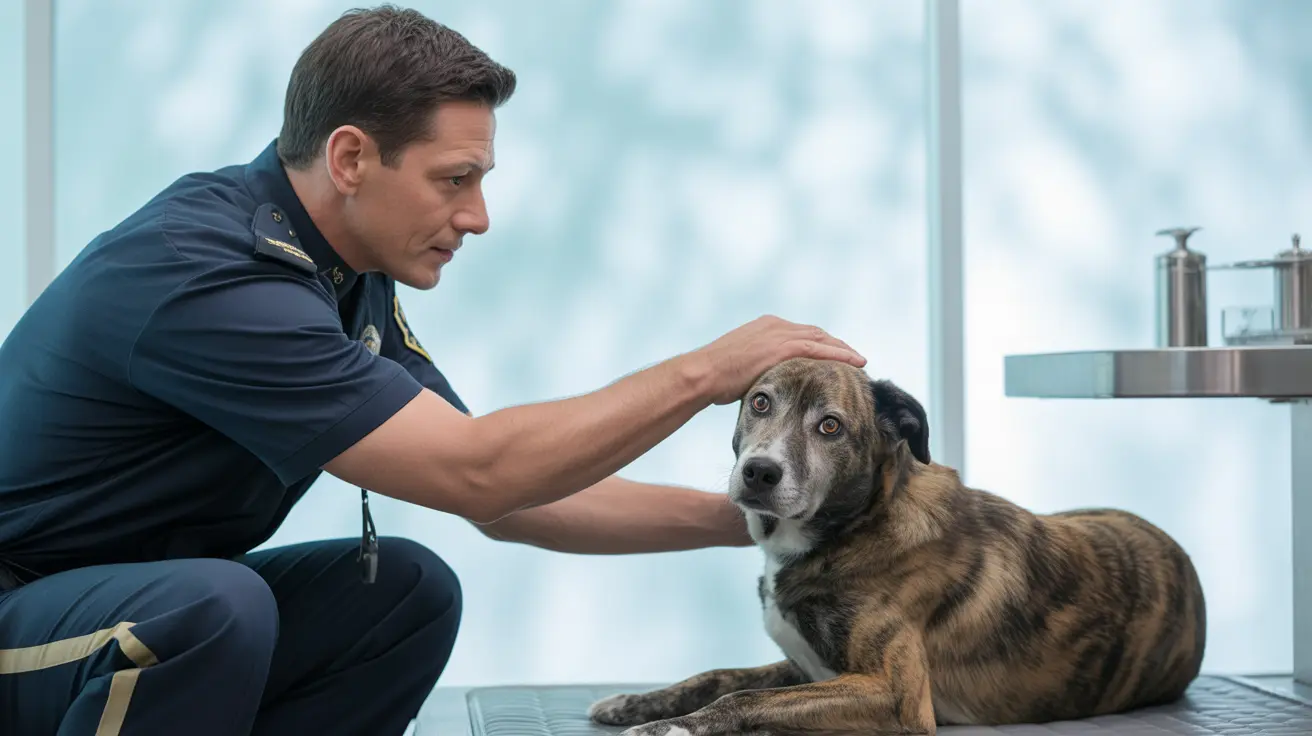Introduction
The Shih Tzu, a breed steeped in royal history and cherished for its endearing personality, has journeyed from the halls of ancient Chinese palaces to become one of today's most beloved companion dogs. This comprehensive guide explores everything prospective and current Shih Tzu owners need to know about this remarkable breed.
With their distinctive appearance and adaptable nature, Shih Tzus continue to capture hearts worldwide. Understanding their unique needs, from grooming requirements to health considerations, is essential for providing these regal companions with the care they deserve.
The Ancient Origins and Royal Heritage
The Shih Tzu's history is deeply rooted in Tibetan culture, where these dogs were revered as sacred companions in Buddhist monasteries. Their name, meaning "lion dog" in Chinese, reflects their majestic appearance and spiritual significance. These precious dogs were eventually gifted to Chinese emperors, where they found their place in imperial courts during the Ming and Manchu Dynasties.
Palace eunuchs were exclusively responsible for breeding these royal companions, ensuring their bloodlines remained pure and their status as imperial property was maintained. Within palace walls, Shih Tzus served not only as cherished lapdogs but also as spiritual guardians, believed to ward off evil spirits and bring good fortune to their owners. This legacy of reverence and care set the foundation for the breed's modern-day popularity as treasured companions.
Journey to Western Recognition
The Shih Tzu's introduction to the Western world began in 1928 when Lady Brownrigg brought the first specimens to England. Initially categorized with similar breeds as "Apsos," they quickly distinguished themselves through their unique characteristics and charming temperament.
The breed's popularity surged after their first appearance at Crufts dog show in 1933. Following World War II, American service members helped introduce these delightful dogs to the United States, leading to their official recognition by the American Kennel Club in 1969. Shih Tzus rapidly established a loyal following due to their affectionate nature and adaptability, traits that continue to endear them to dog lovers worldwide.
Physical Characteristics and Breed Traits
Adult Shih Tzus typically stand about 10 inches tall and weigh between 9 and 16 pounds, making them perfect for apartment living. Their most distinctive feature is their luxurious double coat, which requires dedicated maintenance to maintain its signature flow and shine.
The breed's characteristic features include a round, domed head, large expressive eyes, and an undershot bite. As a brachycephalic breed, they have a shortened facial structure that requires special consideration, particularly regarding exercise, breathing, and temperature regulation. These features give the Shih Tzu a unique expression, combining dignity and warmth that many owners find irresistible.
Essential Care and Daily Needs
Proper Shih Tzu care revolves around understanding their social nature and physical requirements. These dogs thrive on human companionship and need regular interaction to maintain their emotional well-being. Daily care should include moderate exercise, mental stimulation, and plenty of affection to keep them happy and healthy.
A structured routine that balances physical activity with rest periods helps prevent overexertion, particularly important given their brachycephalic nature, which makes them susceptible to breathing difficulties if pushed too hard. Their diet should be carefully monitored to prevent obesity, a common concern in the breed. Owners should also provide fresh water, safe toys for play, and a comfortable resting space to ensure their overall comfort.
Grooming Requirements and Maintenance
Shih Tzu grooming is a significant commitment that requires daily attention. Their long, flowing coat needs regular brushing with appropriate tools to prevent matting and tangling. Professional grooming every 4-6 weeks helps maintain the coat's health and appearance, keeping your Shih Tzu looking its regal best.
Special attention must be paid to the face, particularly around the eyes to prevent tear staining, and the ears to avoid moisture buildup and potential infections. Keeping these areas clean reduces the risk of irritation and health problems. Regular bathing, nail trimming, and dental care are also essential components of their grooming routine. Owners should introduce grooming habits early to help their Shih Tzu become accustomed to the process, making it a positive experience for both dog and owner.
Health Considerations and Preventive Care
While generally healthy, Shih Tzus can be prone to certain health issues. Their brachycephalic structure requires careful monitoring during exercise and in warm weather, as they are more sensitive to heat and respiratory stress. It is important to avoid vigorous exercise during hot days and be attentive to signs of labored breathing.
Regular veterinary check-ups are crucial for early detection of common concerns such as patellar luxation, hip dysplasia, and eye conditions, which can affect this breed. Preventive care, including dental hygiene and weight management, plays a vital role in maintaining their health throughout their 10-16 year lifespan. A balanced diet and appropriate exercise help prevent obesity-related health issues, ensuring your Shih Tzu remains active and content into their senior years.
Training and Behavioral Development
Successful Shih Tzu training relies on positive reinforcement and consistency. While intelligent, these dogs can display an independent streak that requires patience during training sessions. Early socialization is crucial for developing well-adjusted adults who are comfortable in various situations, such as meeting new people or encountering other pets.
Their eagerness to please makes them generally responsive to training, though sessions should be kept short and engaging to maintain their interest. Gentle guidance and praise yield the best results with this sensitive breed. Crate training, housebreaking, and basic obedience should be introduced at a young age, and patience is key to achieving consistent success.
Frequently Asked Questions
- What is the origin of Shih Tzu dogs? Shih Tzus originated in Tibet and were cherished by Chinese imperial courts as both spiritual symbols and loyal companions.
- Are Shih Tzus suitable for families with children? Yes, they are gentle, patient, and get along well with children, especially older ones who can respect their small size and gentle demeanor.
- What is the typical temperament of a Shih Tzu? Shih Tzus are sociable, lively, loving, and adaptable companions, suited to a variety of home environments.
- How much grooming do Shih Tzus require? They need regular brushing, washing, and occasional hair trims to maintain their long coat and prevent tangles and mats from forming.
- What are common health issues in Shih Tzus? They may face eye issues, breathing problems due to their facial structure, and skin conditions if not properly cared for.
- Do Shih Tzus get along with other pets? Yes, Shih Tzus are friendly and usually coexist peacefully with other animals, making them ideal for multi-pet households.
- How much exercise does a Shih Tzu need? Shih Tzus require moderate daily walks and playtime to stay healthy and mentally stimulated, despite their small size.
- Are Shih Tzus easy to train? They are intelligent but can be stubborn, so patience, consistency, and positive reinforcement are important for successful training.
- How long do Shih Tzus typically live? Their average lifespan is around 10 to 16 years, provided they receive proper care and attention.
- Are Shih Tzus good for first-time dog owners? Yes, their affectionate and adaptable nature suits novice owners willing to commit to grooming and their other care requirements.
Conclusion
Understanding and meeting the unique needs of a Shih Tzu results in a rewarding relationship with these charming companions. Their combination of royal heritage and loving disposition makes them excellent pets for dedicated owners who can provide the care and attention they require. By investing time in grooming, health care, training, and companionship, you will ensure your Shih Tzu thrives and brings joy to your family for many years.






